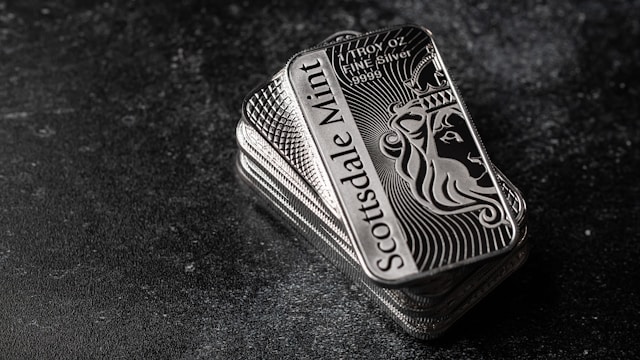Investing in silver bars has become increasingly popular among investors seeking to diversify their portfolios and protect their wealth. However, like any investment, understanding the tax implications of possessing a silver bar is crucial. In this article, we will explore the tax considerations associated with investing in silver bars, helping investors navigate the complex world of taxation and make informed decisions.
Capital Gains Tax
 One of the primary tax implications for investors in silver bars is capital gains tax. When you sell your silver bars at a higher price than what you paid for them, you will likely incur a capital gain. The tax rate on capital gains differs based on various things, including your income level, holding term, and jurisdiction. It is critical to speak with a tax specialist to ascertain the capital gains tax rate that is applicable to your circumstances.
One of the primary tax implications for investors in silver bars is capital gains tax. When you sell your silver bars at a higher price than what you paid for them, you will likely incur a capital gain. The tax rate on capital gains differs based on various things, including your income level, holding term, and jurisdiction. It is critical to speak with a tax specialist to ascertain the capital gains tax rate that is applicable to your circumstances.
Short-term vs. Long-term Capital Gains
The duration for which you hold your silver bars can impact the tax you owe on capital gains. If you sell your silver bars within a year of purchase, any profit will be subject to short-term capital gains tax, which is usually greater than long-term capital gains tax. Holding your silver bars for longer than a year allows you to benefit from potentially lower long-term capital gains tax rates.
Reporting Requirements
As an investor in silver bars, it is important to understand and fulfill your reporting requirements. Depending on your jurisdiction, you may need to report your silver bar investments on your tax returns, providing details on acquisition dates, sale prices, and any relevant expenses associated with your investment. Failure to accurately report your silver bar investments could result in penalties or legal issues, so it is crucial to stay informed and fulfill your reporting obligations.
Precious Metals IRAs
A Precious Metals IRA allows investors to hold physical silver bars within a tax-advantaged retirement account. By doing so, investors can potentially defer taxes until funds are withdrawn from the account. However, it is important to note that there are specific rules and regulations governing Precious Metals IRAs, so consulting with a financial advisor or tax professional is essential to ensure compliance.

Sales Tax and VAT
In some jurisdictions, the sale of silver bars may be subject to sales tax or value-added tax (VAT). The tax rate and applicability can vary depending on the country or state in which the transaction takes place. It is crucial to research and understand the applicable tax laws before purchasing or selling silver bars to avoid any surprises or unexpected costs.
Conclusion
Investing in silver bars can offer investors a tangible and potentially lucrative investment opportunity. However, it is essential to consider the tax implications associated with such investments. Understanding capital gains tax rates, reporting requirements, and potential tax advantages such as Precious Metals IRAs is vital for successful and compliant investing. By staying informed and seeking professional advice when needed, investors can navigate the tax landscape and optimize their strategies while investing in silver bars.








